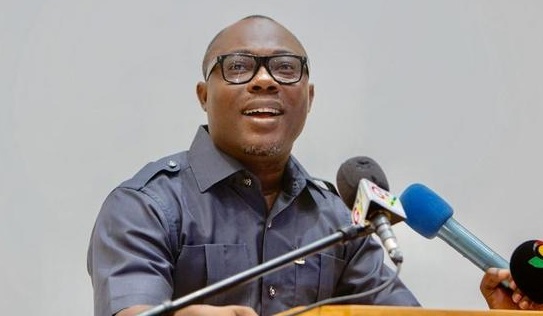Kan Dapaah’s analysis of Coup promotion is ‘quite jaundiced’ -Prof Gyampo

The National Security Minister, Albert Kan Dapaah, has faced sharp criticism from Prof. Ransford Gyampo, a Professor of Political Science at the University of Ghana, for his remarks accusing certain individuals in academia and civil society of promoting a coup and destabilizing the country.
In an interview on Accra-based Joy FM, Prof. Gyampo expressed his disapproval, describing the Minister’s comments as “quite misplaced” and “jaundiced.”
Kan Dapaah had accused certain individuals in academia, civil society, and the media of leveraging their influence to spread narratives in support of a coup or military rule, a trend he found deeply concerning and a threat to Ghana’s democracy.
Prof. Gyampo, however, believed that the Minister’s statements reflected a lack of understanding of the country’s current situation. He acknowledged Mr Dapaah’s contributions to maintaining peace in Ghana but felt that his analysis was off the mark.
“In Ghana, a more disconcerting trend is also emerging. Notably following the coup in Niger, certain individuals in academia, civil society and the media, from what I have observed have been propagating false narratives in support of a coup or military rule.
“These actors have gained substantial followings on social media leveraging the influence to disseminate misinformation that threatens our nation’s peace and also stability, especially as we approach the critical December 2024 general election,” he claimed.
According to the National Security Minister, “Misinformation, whether intentional or inadvertent, from these individuals because they are influential poses a significant threat to Ghana’s stability.”
“It is also because people like him are working tirelessly behind the scenes to deal with potential troublemakers and to ensure that things are kept always quiet. But his analysis and what was written for him about potential fuelers of coup, in my view, is quite jaundiced,” he said.
According to Prof. Gyampo, the factors that lead to coups in countries are more closely related to bad governance, corruption, economic mismanagement, nepotism, hunger, poverty, a sense of despondency within the system, and opulent living styles of government appointees. These variables create an environment in which citizens have legitimate grievances.
Therefore, describing those grievances as an attempt to garner support for a coup is, in his view, a misplaced analysis.
He stressed that the most effective way to prevent coups is through good governance and addressing the root causes of public discontent. Prof. Gyampo’s comments highlight the importance of addressing economic and governance issues as a means to maintain political stability.





